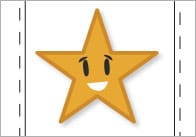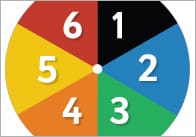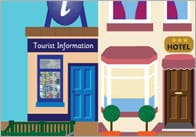How to Help your Dyslexic & Dyspraxic Child
Jack seems to be in a world of his own. While other children run and play, he hangs back and when it is time to put things away and sit on the carpet for story time he seems to be dawdling. Yet if you get him on his own and talk to him he is very articulate, bright and funny. If you are working with a child who fits this profile it is quite likely that he has dyslexia or, dyspraxia or a combination of the two.
Dyslexia Action estimates that two million people have dyslexia while Dyspraxia Foundation claims that up to 10% of the population has dyspraxia, a condition which affects the brain’s ability to communicate with the muscles so co-ordination and motor skills will be affected. On average, 4 boys will show signs of these conditions to every girl.
When I was researching my book How to Help your Dyslexic and Dyspraxic Child I talked to Linda whose daughter Chloe has dyslexia. “Chloe was a very sociable, happy little girl but when she had an early years’ assessment, she could not thread beads. We thought at the time that she was just too impatient but looking back, this was probably the first sign that she had dyslexia.’
Emma’s son Rupert has dyslexia and dyspraxia. She spotted the symptoms early because she had seen signs in other members of the family. She could see that he had co-ordination problems from the way he handled toys and clothes and these signs became more apparent once he was trying to draw, “Rupert held his pencil in an odd way and was always writing with his hand twisted over so he was writing back on himself.’
Five key signs to look out for
1) Difficulty with clapping a simple rhythm
2) ‘Hearing’ rhymes
3) Difficulty with sequences – numbers, coloured beads or days of the week
4) Remembering instructions
5) Problems with direction – they will be the ones going the wrong way in a dance
Of course, many young children have difficulties but most will grow out of them. With children with dyslexia and dyspraxia, the difficulties persist and that is what is so frustrating for teachers, for parents and for the child as well. That is why children with dyslexia may start to have behavioural problems and grow into tantrums instead of growing out of them.
Activities which help
– Try songs with actions to improve links between visual, auditory and kinaesthetic memory . Songs which involve memory and sequencing such as I know an Old Lady who Swallowed A Fly
– Build up the complexity of sets of instructions. Start with one or two only: e.g. “Please pick up teddy and put him in the box”. Gradually make the sequence longer, Pick up teddy, find a scarf and a hat and put them on him .’ Encourage the child to say the instruction out loud as his own voice is the best memory aid
– Let them feel letter shapes with sand paper, magnets, tracing in a sand tray, using plasticine, pipe cleaners. Write with chalk, paint, thick felt pens and very large shapes and letters. Go for lots of activities such as drawing circles, zigzags and squares which will lead onto letter shapes
Many parents will be alarmed at the thought that their child is not making the same progress as others in the group. You need to make sure that they do not pressurise the child and turn him into a little worrier. You can mention dyslexia and dyspraxia but remember that at this age children can develop skills very suddenly. Always offer practical advice. Suggest activities which they can do at home to reinforce memory and pre-pencil skills. When you talk to parents about your concerns, always put the negative before the positive because research has shown that people focus on the words after the But.. so tell them, ‘Megan has problems with holding a pencil but she has a wonderful vocabulary.’ That way, you can help the parent to help their child and build skills and confidence.
How to Help your Dyslexic and Dyspraxic Child by Sal McKeown has a foreword by Tom Pellereau, winner of the Apprentice. and is available from www.crimsonbooks.co.uk.
Comments
Leave a Reply
Popular Teaching Resources
Stay Up To Date
Sign up for our newsletter and we’ll let you know when we create new early years resources.






this has really helped i have just had a text and foound out i have it and this is really hellping me. i have been looking for help and thing and this does help a lot.
i am only 14 and i was quit scard at first becouse i also have some more things that have gone on with it.
THANK YOU!